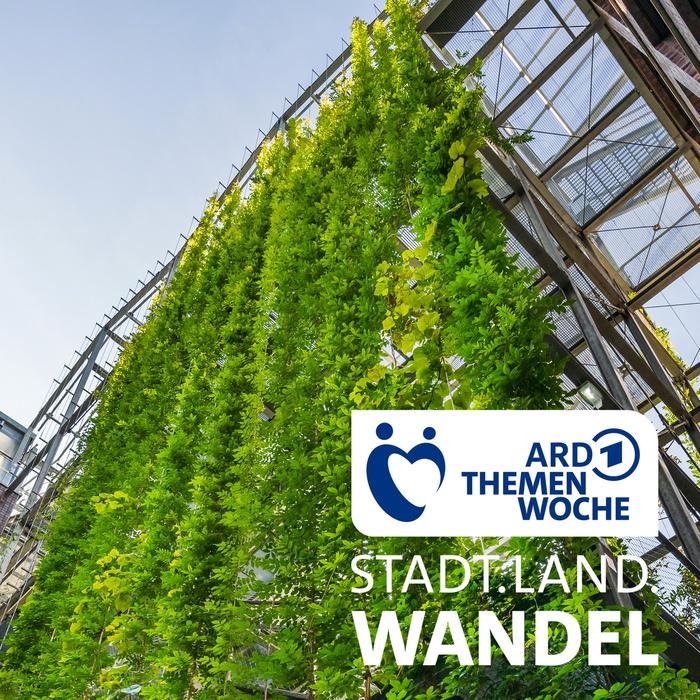
Is life better in the city or in the country? Where is the future home? These and other questions are the focus of the ARD theme week "City. Country. Change". In NRW the trend seems clear.
By Rainer Striewski
New section
"" Bernd Jakobs, mayor of Kalterherberg in North Rhine-Westphalia, is positive about the future of his village.
In doing so, he is following a trend that is currently emerging in North Rhine-Westphalia. For the first time in years, more people left the large cities in NRW than new ones moved in last year. This can be determined by the so-called net migration, i.e. the difference between the people who have moved to a municipality and those who have left the municipality. Calculated across all major cities in NRW, this balance was slightly negative for the first time in years. In the small towns, on the other hand, it increased significantly. Large cities in NRW have apparently lost their attractiveness - also due to the corona pandemic.
Back to the country: "Everything in life has its time."
This becomes particularly clear if you only look at the moves of people within NRW , i.e. without people moving in from abroad or other federal states. Then the balance sheet of the medium-sized towns has remained quite unchanged over the last few years, small towns, on the other hand, gain significantly and large cities lose.
The number of people moving to the major cities of North Rhine- Westphalia fell by 17.2 percent in the past Corona year. While 301,749 people moved to the big cities, 302,139 people left these cities again - for example to move to small towns.
Happy in the country: Julia Handtke

Julia Handtke also moved from the big city to the country. , she reports. Today, with a "return agency," she also helps others to gain a foothold in the countryside again.
What is the trend after Corona?
Will this trend continue after Corona? How and where do people in NRW want to live in the future? Where is the future for you at home? The cooperation study published as part of the ARD theme week provides some answers. It shows that people in rural regions assess possible future changes differently than their fellow citizens in the cities - and thus provides answers as to why people would like to live in the city or in the country.
About the study "City. Country. Opportunities"
New section
The study is a joint project of the German Academy of Science and Engineering (acatech) and the Center for Responsible Research and Innovation ( CeRRI ) of the Fraunhofer IAO. The media partner is Bayerischer Rundfunk ( BR ). The study was supported with funds from the Science Year 2020/21 of the Federal Ministry of Education and Research ( BMBF ). From June 21 to July 18, 2021, 8,787 people volunteered for this survey. The results are not representative.
New section
Rents are a big concern
Sonja Dransfeld asks that. She moved from the country to the outskirts of Cologne for an apprenticeship and finds the rents here incredibly high. This feeling is also confirmed by the current statistics:
New section
Better care in the country or in the city?
The different assessments of urban and rural residents become clear, for example when it comes to health. While 81.6 percent of people in rural areas are concerned that the health infrastructure in the area is getting worse, only two thirds (66.2 percent) of those surveyed in the city share this perception.
So advantage city? Not quite: Because a different picture emerges if you specifically ask about support in the neighborhood in NRW . The fear among respondents in the cities of North Rhine -Westphalia is greater than in the countryside that the neighborhood would not help with health problems.
Sustainability and environmental protection are important to many
However, there is great agreement between city and country dwellers on the subject of sustainability and environmental protection. The desire for ecological sustainability is evident in all areas of life. For many of those surveyed, it is important that the food they buy was grown in the region (94.2 percent in the city and 95.7 percent in the country).
Where better to do without a car?
Many also think of the environment when it comes to mobility in the future: around 9 out of 10 respondents hope to be able to use green energy in the future.
But how exactly will we travel? Apparently those who live in the city in NRW are more likely to be able to do without a car. Here, many of the respondents are rather optimistic that they will be able to continue living in their place of residence if they can no longer drive a car. Respondents in rural areas are somewhat less optimistic.
The impressions differ even more clearly when it comes to living and building, specifically when it comes to recreation in nature. The concern of those surveyed in the city that there will not be enough local recreation areas in the area in the future is significantly higher than that of those surveyed in the countryside.
The ARD theme week is dedicated to the future of our country. She wants to show visions and discuss their chances and dangers - also very specifically on site. For example, many adult education centers offer programs, lectures and seminars as cooperation partners that deal with the change in Germany. All campaigns, videos, reports and audios for the theme week can be found here in the overview:







